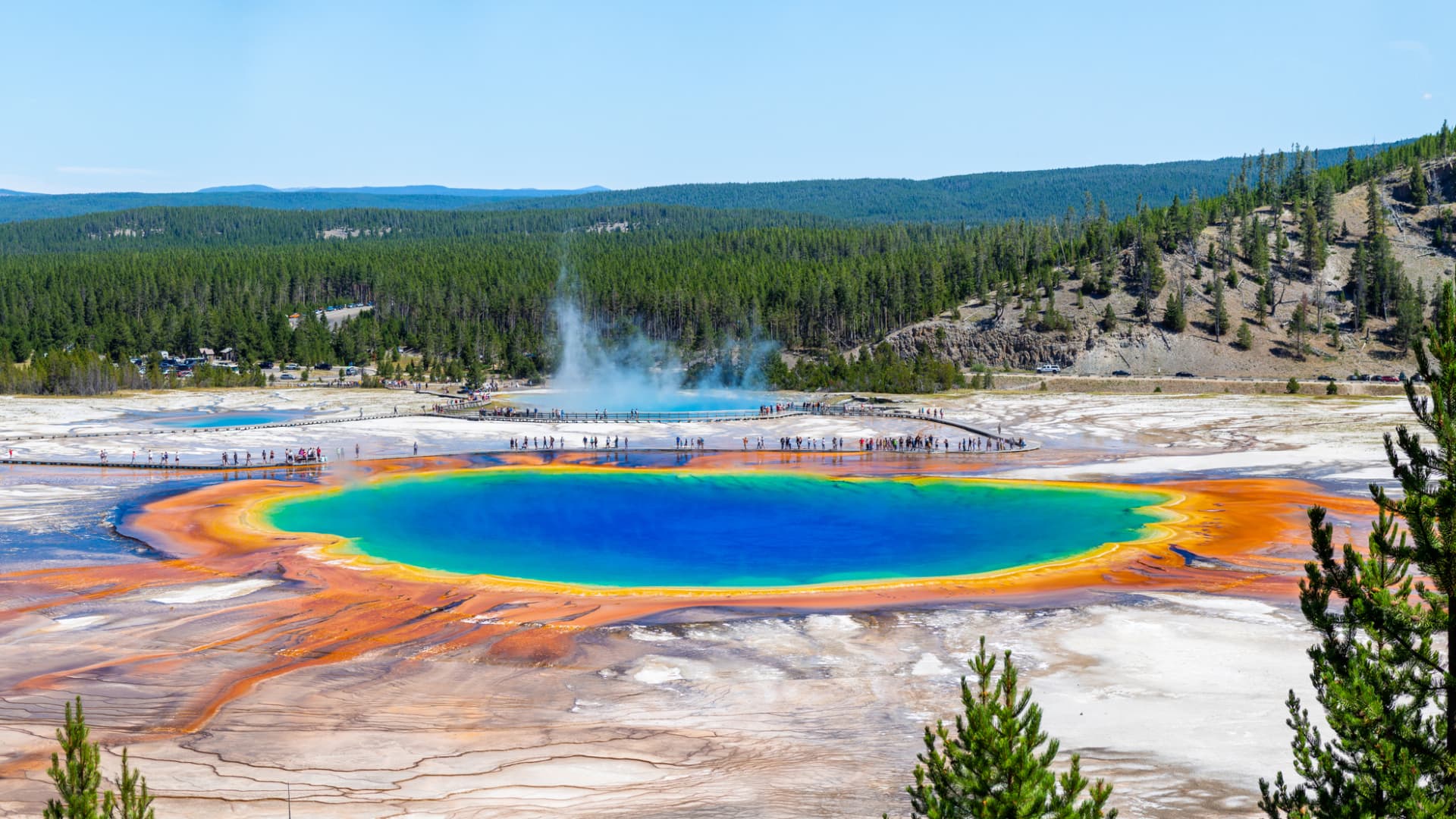Visitors to national parks will get free admission on April 20 as the federal government waives entrance fees to commemorate the start of National Park Week.
National Park Week runs for nine days, from April 20 to April 28.
The National Park Service oversees 429 park sites in the U.S. Of them, 63 are national parks. The remainder are national monuments, national battlefields and national historic sites, for example.
More from Personal Finance:
4 big ways to save on your next trip
Don’t let this passport quirk upend your next vacation
2024 is the ‘year of globetrotting’
Most offer free entrance all the time. However, 108 parks don’t — including some of the most popular, like Grand Canyon, Zion, Rocky Mountain, Acadia, Yosemite, Yellowstone, Joshua Tree and Glacier national parks.
Their entrance fees — which typically range from $20 to $35 per vehicle — will be waived on April 20.
Fee structures can vary: Some parks may charge per person instead of per vehicle, and there may also be different fees for motorcycles, for example.
April 20 is one of six days in 2024 when access is free to all national parks. They include:
There’s a caveat, however. While all parks may be free on these days, some still require an additional reservation for entry. Those reservations generally come with an extra fee.
For example, Yosemite National Park in California requires reservations to drive into or through the park during peak hours — between 5 am and 4 pm local time — on many days this year. They include holidays and weekends between April 13 and June 30, and every day from July 1 through August 16, for example.
Yosemite visitors won’t be allowed entry without making an online reservation ahead of time. They cost $2, are nonrefundable and are valid for three consecutive days.
Additionally, it may make financial sense for visitors to buy an annual national park pass even if they plan to visit during a free entrance day, depending on the trip itinerary, Mary Cropper, travel advisor and senior U.S. specialist at Audley Travel, previously told CNBC.
The $80 annual pass grants unlimited entrance to national parks and other federal recreation areas. Some groups can get reduced-price or even free annual passes.
For example, a pass would likely be a better option if you plan to visit multiple parks in one trip, Cropper said.
“You want to do the math,” she said.






